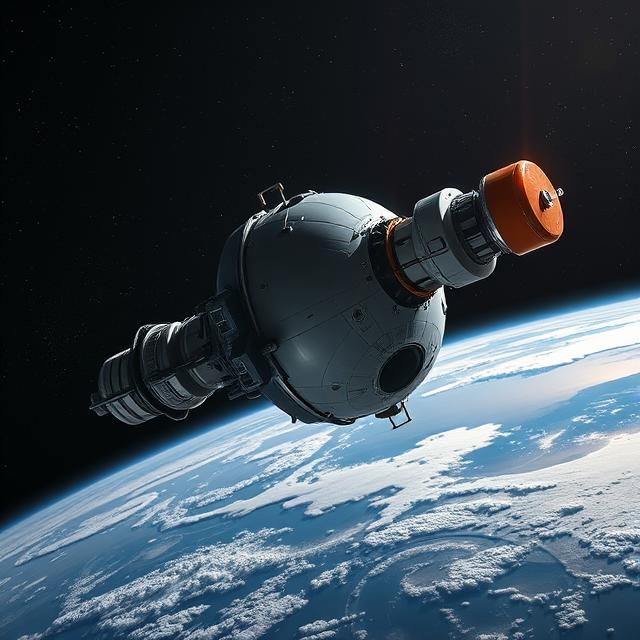Introduction
In the 21st century, space exploration and cooperation have become critical components of global diplomacy, scientific advancement, and technological innovation. India, through its space agency, the Indian Space Research Organisation (ISRO), has emerged as a key player in international space activities. Over the past several decades, ISRO has not only made significant contributions to space science and technology but has also positioned India as a prominent participant in the global space arena.
India’s space diplomacy, driven by ISRO, has evolved from a modest beginning into an influential force in international collaborations, partnerships, and agreements. This article explores the role of ISRO in fostering global space cooperation, the milestones achieved through space diplomacy, and the broader impact of India’s space policy on global space governance and international relations.
India’s Space Journey: A Brief Overview
India’s space program dates back to 1962 when the Indian National Committee for Space Research (INCOSPAR) was established under the leadership of Dr. Vikram Sarabhai, who is often regarded as the father of the Indian space program. ISRO was formed in 1969, and its first major success came with the launch of the Aryabhata satellite in 1975, which marked India’s entry into the space age.
Since then, ISRO has achieved numerous milestones, including:
- Chandrayaan-1 (2008): India’s first mission to the Moon, which made groundbreaking discoveries, including the presence of water molecules on the lunar surface.
- Mangalyaan (2013): India’s Mars Orbiter Mission (MOM), making India the first Asian country to reach Mars orbit and the first country globally to succeed in its maiden attempt.
- Chandrayaan-2 (2019): A follow-up mission to study the lunar surface and explore the Moon’s south pole.
- GSAT Satellites: India’s own series of communication satellites used for broadcasting, telecommunication, and weather forecasting.
These achievements have solidified India’s reputation as a space power. Today, ISRO stands as one of the most respected space agencies globally, known for its cost-effective missions, technological innovations, and its role in space diplomacy.
The Role of ISRO in Global Space Diplomacy
India’s space diplomacy has been guided by ISRO’s ability to balance national priorities with international collaborations. The role of ISRO in global space diplomacy can be understood through its contributions in various domains:
1. International Satellite Launches
One of the most visible aspects of ISRO’s role in space diplomacy is its commercial satellite launch services. ISRO has become a reliable and cost-effective partner for countries and companies around the world seeking to launch their satellites. Through its Polar Satellite Launch Vehicle (PSLV) and Geosynchronous Satellite Launch Vehicle (GSLV) programs, ISRO has launched satellites for over 30 countries.
This has helped strengthen India’s ties with countries across continents, fostering goodwill and strengthening diplomatic relations. Notable launches include:
- South Asia Satellite (2017): A unique initiative aimed at providing satellite-based services such as telecommunication, broadcasting, and disaster management to India’s neighboring countries, including Afghanistan, Bangladesh, Bhutan, Nepal, Maldives, and Sri Lanka. This initiative was seen as a demonstration of India’s commitment to regional cooperation and development.
- GSAT Satellites for African Countries: ISRO has launched communication satellites for several African nations, helping improve telecommunication infrastructure and access to remote services like healthcare and education in underserved regions.
2. Space Exploration and Collaborative Missions
ISRO has positioned itself as a key player in space exploration by engaging in high-profile international collaborations. Some of the significant missions include:
- Chandrayaan-1: In addition to India’s achievements, the mission was a joint venture with the European Space Agency (ESA), which provided the SMART-1 spacecraft for the mission. The findings from this mission revolutionized lunar research and contributed significantly to the scientific community.
- International Space Station (ISS) Cooperation: Although India is not yet a direct partner in the ISS program, ISRO has contributed to the global space station through its participation in the United States-India Civil Space Joint Working Group. ISRO has also signed agreements with other countries, including Russia and France, for joint space research and future exploration projects.
3. India-Russia Space Partnership
India and Russia share a long history of space cooperation dating back to the 1970s when India’s space program began. Over the years, both countries have strengthened their partnership through joint missions, technology exchanges, and collaborative space ventures.
One of the most prominent aspects of this cooperation is the Gaganyaan mission, India’s first crewed space mission, which is planned to launch in the near future. India has received crucial assistance from Russia, particularly in terms of astronaut training and crew spacecraft technology. This partnership is a testament to ISRO’s ability to collaborate with major space powers to enhance its capabilities.
4. Space for Development: South-South Cooperation
ISRO has extended its expertise to developing countries, particularly in the Global South, to assist them in utilizing space technologies for development purposes. Through the Indian Space Research Organization’s (ISRO) Space Applications Centre (SAC), India has been helping countries with satellite-based applications in various sectors such as:
- Agriculture: Providing satellite imagery and remote sensing data to help farmers increase crop yields and monitor crop health.
- Disaster Management: Offering early warning systems for natural disasters such as cyclones, floods, and earthquakes, allowing affected countries to better prepare for and mitigate the effects of such events.
- Education and Healthcare: Using telecommunication satellites to expand access to education and healthcare in rural and remote areas.
This has helped ISRO build strong relationships with countries in Asia, Africa, and Latin America, positioning India as a key partner in space-based development.
5. Strategic Space Diplomacy and National Security
While India’s space diplomacy has largely been peaceful and focused on scientific cooperation, ISRO’s space capabilities also have strategic implications for national security. India’s space policy emphasizes the peaceful use of space, but it also acknowledges the role of space in defense. As a result, India has been actively involved in ensuring the security of its space assets and contributing to global space governance discussions.
India has been an active member of key space treaties such as the Outer Space Treaty (OST) and the Convention on Registration of Objects Launched into Outer Space. Through its participation in these treaties and discussions, India has positioned itself as a responsible space power, committed to ensuring the sustainable and peaceful use of outer space.

The Future of ISRO’s Space Diplomacy
As ISRO continues to expand its capabilities, its role in global space cooperation is expected to grow even further. Some of the future directions for India’s space diplomacy include:
1. Moon and Mars Exploration
Following the success of Chandrayaan-2 and the successful Mangalyaan mission, India has announced plans for future lunar and Mars missions. Chandrayaan-3 is expected to further advance India’s lunar exploration efforts. India has also expressed interest in contributing to the Artemis program, a U.S.-led international initiative aiming to return humans to the Moon by 2024. Through these efforts, ISRO aims to establish a permanent presence in space and cement India’s role in international exploration initiatives.
2. Space Stations and Human Spaceflight
India’s crewed mission, Gaganyaan, will significantly enhance ISRO’s space capabilities. The successful execution of this mission will not only elevate India’s space prestige but will also deepen collaborations with other space agencies. India’s growing human spaceflight capability could lead to more participation in the International Space Station or even the creation of a collaborative space station with international partners.
3. Private Sector and Commercial Space Cooperation
India is also taking steps to open its space sector to private enterprises. The creation of the Indian National Space Promotion and Authorization Center (IN-SPACe) will facilitate private sector participation in space activities, which could lead to increased collaboration with international space firms and agencies.
4. Space Law and Governance
As space activities increase, the need for effective space governance becomes more pressing. India has been an advocate for the peaceful use of space and is expected to play an important role in shaping international space laws and policies in the coming years. ISRO’s involvement in the development of space traffic management and space debris mitigation will be critical to maintaining space security and sustainability.
Conclusion
India’s space diplomacy, largely driven by the achievements and initiatives of ISRO, has transformed the country into a leading player in global space cooperation. Through its satellite launches, space exploration missions, and contributions to space for development, ISRO has fostered international partnerships that benefit both India and the world. As India continues to expand its space capabilities and engage in global space governance, the role of ISRO in shaping the future of space diplomacy will remain central to its foreign policy and strategic objectives. The future of India’s space diplomacy is bright, with opportunities for deeper cooperation, further technological advancements, and a stronger presence in the exploration and utilization of outer space.




